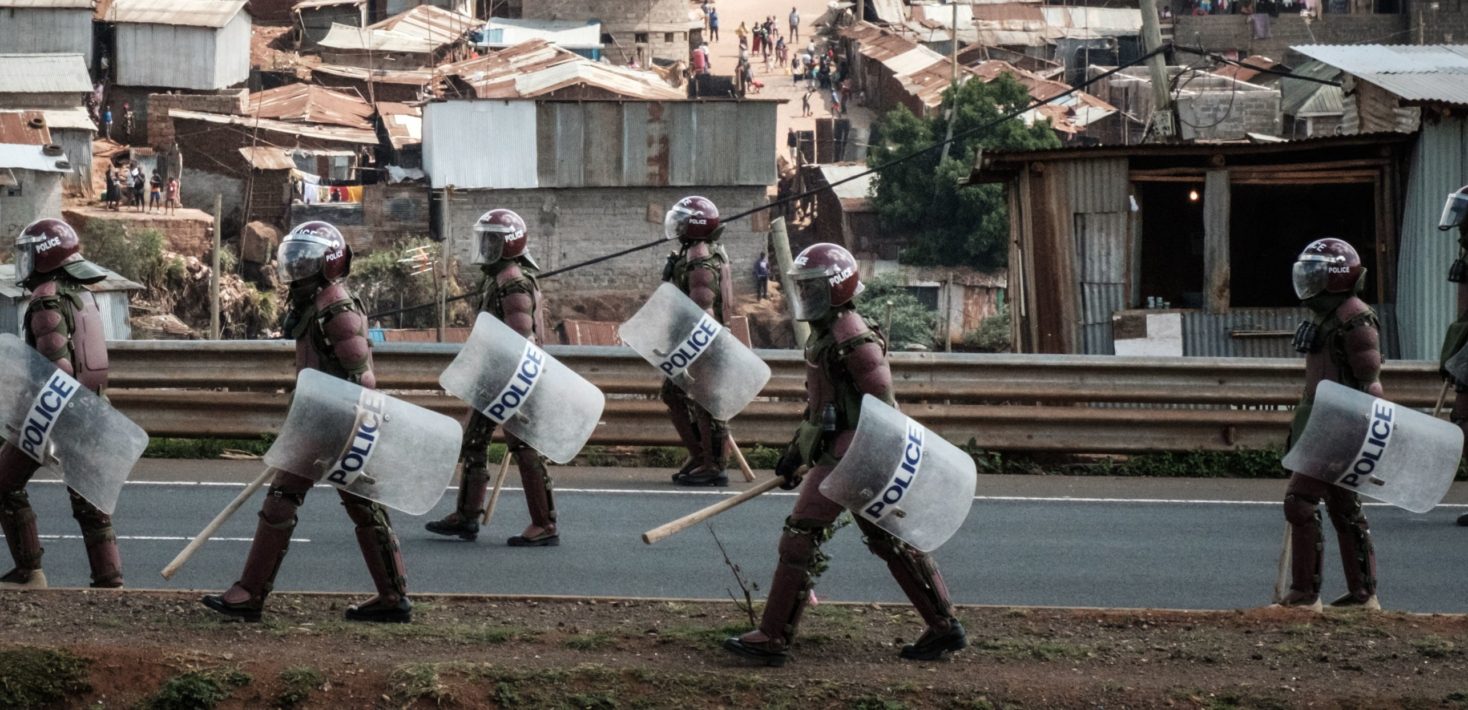A day before President Ruto launched new terms and conditions for the police, prisons and national youth service on Wednesday this week, Police officers chose to riot and rampage uninvited through the Multi-Media University of Kenya. If the last three months were not enough of a poisoned cup for Police Inspector General Douglas Kanja, who assumed office on Thursday, his new appointment could just tarnish four decades of his career if he is not careful.
Two weeks ago, Nyerian Trevor Mathenge Muriithi (20) left his proud family to join Multi-Media University to study media and communications. New to campus, the fresher was neither a student leader nor familiar with the campus layout when all hell broke loose. Isolated in his hostel, the war cries of police officers, the sound of batons battering fellow students, and the acrid smell of tear gas must have been terrifying. According to eyewitnesses, he broke his right ankle trying to get out of their way.
What followed has now been seen by millions. Trevor is assaulted severally by three police officers twice his size and dragged along the concrete, begging he is in pain. One officer detonates a tear gas canister and drops it on his head, shouting, “Mpe dawa”. Disassociating themselves, the University’s administration has argued they did not authorize the police operation. Students’ associations, human rights organisations and MPs have condemned the incident, but the Education Ministry, Interior Ministry and State House remain mum.
Eight years ago, a similar incident inspired me to apply for the Amnesty International Kenya Executive Director position. Scores of armed General Service Unit stormed the Architecture, Design, and Development building of the University of Nairobi on September 28, 2017, at the invitation of Vice-Chancellor Peter Mbithi.
The rights abuses are documented in detail in “Afternoon of #Campus Terror” by the Nairobi University Academic Rights Action Group, Women in Real Estate and the Architectural Association of Kenya. Officers bearing “Utumishi kwa wote” badges flushed built-environment students out of their dormitories and classrooms. They forced them to squat while ridiculing them as “wasomi”. They then beat, sexually assaulted and stole from them in broad daylight.
Despite national uproar, no officer or their commander was disciplined, arrested or dismissed for the police’s conduct that day. Instead, one of the commanding officers was promoted up the chain of command to the top of the Service. Despite clear signs that Japeth Koome had been implicated in this and other human rights abuses over 2017, in November 2022, President Ruto appointed him to lead 110,000 officers nationwide. Unsurprisingly, given his history, he served less than half of his four-year term before leaving disgraced by security lapses and human rights abuses during the Gen Z protests.
It is indicative that of the five Police Inspector Generals since the passing of the constitution, only Joseph Boinett has served the full statutory tenure of four years. While we wish Douglas Kanja all the best for his term of office, we must be honest with him: it will take bold leadership to restore the discipline and dignity of the service and public confidence in his office. The season of public violence, abductions by secret squads, non-cooperation with IPOA and human rights organisations and contempt for court orders has polluted the national atmosphere.
Only the next few weeks will tell whether Kanja has seen the limitations of batons and bravado against mass public disaffection or the gavel of a high court judge. The incoming IG could start by immediately dismissing and recommending Muriithi’s tormentors for prosecution. He can also open his doors to discuss with the judiciary, IPOA, and human rights organisations how his office can restore the partnership that former inspector generals have enjoyed. The early Friday morning release of Bob Njagi, Aslam and Jamil Longton after a month of captivity is a good start, although hard questions remain. I, for one, hope Kanja can distinguish his legacy from his immediate predecessor. Kenyans and his long service to the public deserves nothing less.
Irũngũ Houghton is Amnesty International Kenya Executive Director and writes in his personal capacity. Email: [email protected]


